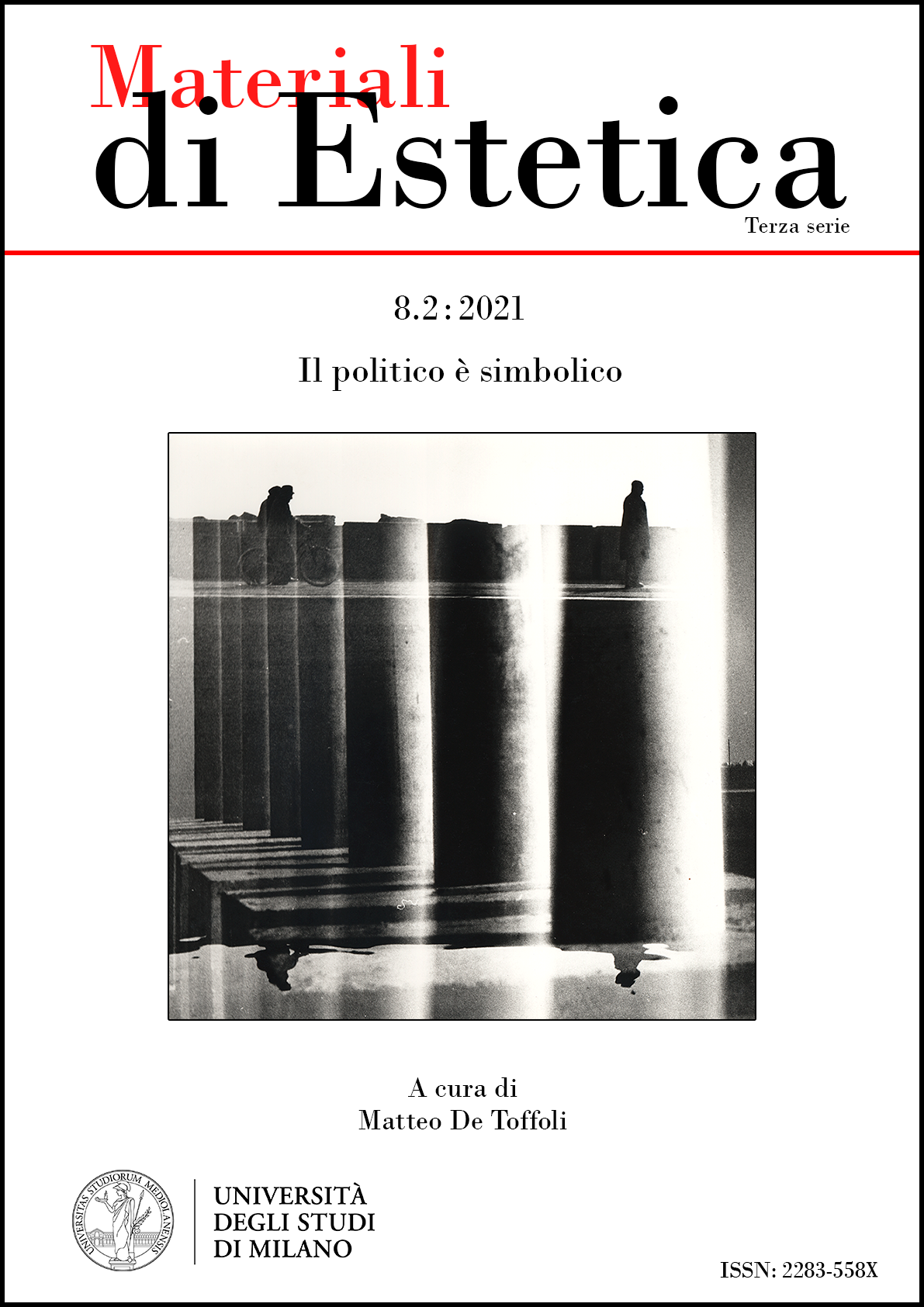L’orologio e il calendario
Simbologia politica del tempo a partire da Walter Benjamin
DOI:
https://doi.org/10.54103/mde.i8.2.16983Parole chiave:
Clock, Calendar, Benjamin, Political SymbolismAbstract
This article aims at reflecting on the political significance of distinct conceptions of temporality and their symbolic representation in the work of Walter Benjamin. In particular, the “clock” and the “calendar” will be addressed as symbols of, respectively, a linear and homogeneous conception of time and of a cyclical, uneven – and potentially revolutionary – temporality. The conception of time symbolized by clocks is criticized by Benjamin as a bourgeois understanding of progress, which inhibits revolutionary tensions in society by shifting the political focus on future, on the inevitability of progress and growth; on the other hand, calendars’ and ancient cyclical festivals’ temporality constantly looks at the past, celebrating and re-actualizing the memory of previous revolutionary attempts. In the last section, the article will consider the role of symbols and allegories in Benjamin’s philosophical writing, casting new light on the previous discussion.






